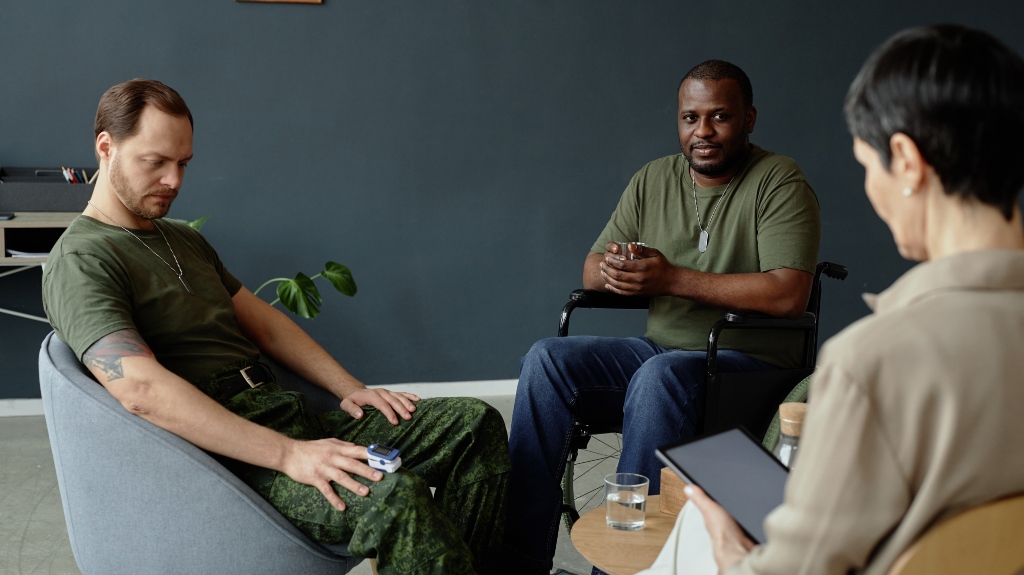
The Importance of Buddy Statements in VA Disability Claims
Many veterans can bolster their VA disability claim by including “buddy statements,” which can provide corroborating testimony from individuals with first-hand knowledge of the service events that caused the veteran’s disability or how that disability has affected the veteran’s life.
Understanding Buddy Statements
A “buddy statement” refers to a written statement from a lay witness to support a veteran’s VA disability benefits claim. A buddy statement, also called a “lay witness statement,” goes on VA Form 21-10210, Statement in Support of Claim. Veterans may submit buddy statements from family members, friends, fellow servicemembers, former commanding officers, or co-workers in the veteran’s current civilian job. Buddy statements can provide a witness’s testimony regarding the service-related event(s) that allegedly caused the veteran’s medical condition and disability. Witnesses can also describe how a veteran’s condition adversely affects their ability to work and handle daily activities like grooming, bathing, cooking, cleaning, and eating.
How Buddy Statements Strengthen VA Disability Claims
Buddy statements can form a critical part of a VA disability claim in several ways. Examples of how a buddy statement can strengthen a veteran’s disability benefits claim include:
- Filling gaps in service records: Buddy statements from a veteran’s former commanding officers and unit members can help provide additional information to supplement official service records, which may have missing documents or incomplete information about a service event.
- Providing first-hand accounts of service events: A veteran’s commanding officers and unit members can also verify the veteran’s claims about in-service events that caused their disability, such as specific combat incidents, accidents, exposure to hazardous conditions, and various stressors.
- Corroborating the veteran’s subjective complaints: Buddy statements from friends, family members, and current co-workers can support the veteran’s description of their current medical condition or the deterioration of their condition over time.
- Supporting mental health claims: Because mental health conditions may lack objective diagnostic testing and other medical evidence, buddy statements can help corroborate a veteran’s description of how mental health issues like depression or PTSD have had a disabling effect on their life.
Key Elements of Buddy Statements
A compelling buddy statement will include several elements:
- The witness’s identification: The statement should identify the witness via name and their relationship to the veteran (e.g., family member, co-worker, former commanding officer, etc.)
- Explanation of the witness’s personal knowledge: A buddy statement should explain how the witness has personal knowledge of the details they provide, such as through first-hand observations or contemporaneous statements from the veteran.
- Specific details: A witness’s statement should provide specific dates, locations, and descriptions of events, injuries, or symptoms.
- Narrative statement: An effective buddy statement should provide an honest, consistent narrative. Witnesses should avoid exaggerating events or symptoms or providing speculation that strays into the scope of expert opinion testimony.
Common Mistakes to Avoid
When you ask someone you know or have served with to provide a buddy statement in support of your VA disability benefits claim, tips you can give them to help avoid mistakes that may undermine the strength of their statement include:
- Avoid vague or generalized statements: Witnesses should provide detailed descriptions of service events or specific examples of how a veteran’s disability has adversely affected them.
- Avoid inconsistencies with medical records or other documents: Buddy statements may have less persuasive value if they contradict the medical evidence or official service records.
- Refrain from providing information not based on first-hand knowledge: Witnesses should only provide information based on direct, first-hand knowledge and avoid providing information they heard second-hand.
Contact a VA Disability Attorney Today
When you have a military service-connected disability, you may qualify for VA disability benefits. Your benefits application can benefit from compelling buddy statements from people you served with, family members, friends, and current co-workers. Contact Veteran Benefits Legal Group today for an initial consultation with a VA disability lawyer to learn more about creating a compelling benefits application that can give you the best chance of success.
Share This Story
Interested in this topic? Your friends might be too! Consider sharing this story to your social media channels and look like a smart, sophisticated resource of information.

